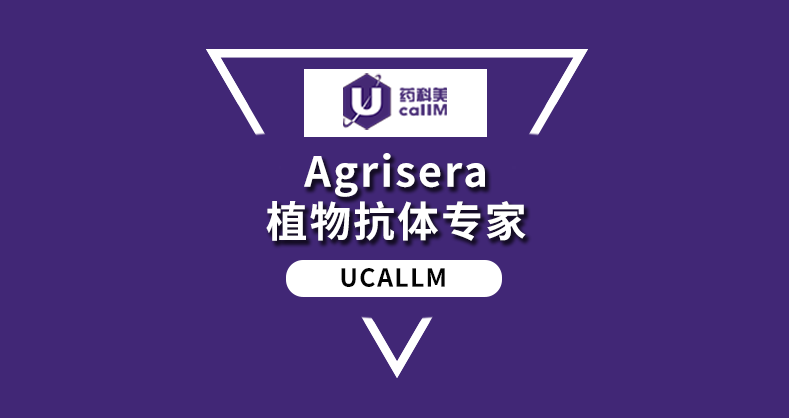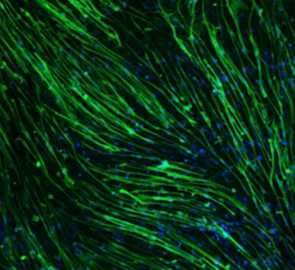
rPeptide是美国一家生物化学研发公司,主要产品涉及领域为老年性痴呆症与帕金森综合症研究使用的重组蛋白,重组多肽,抗体以及试剂等等,另外还提供一系列外包服务,从分子生物学,蛋白表达与蛋白纯化到13C与15N 统一标记蛋白与多肽。同时, rPeptide 技术平台可解决可溶性多肽/蛋白(例如:β-淀粉样蛋白、廋蛋白、前胰岛素)在大肠杆菌中表达等历史性难题。
以下是该公司部分代表产品:
Antibodies(抗体)
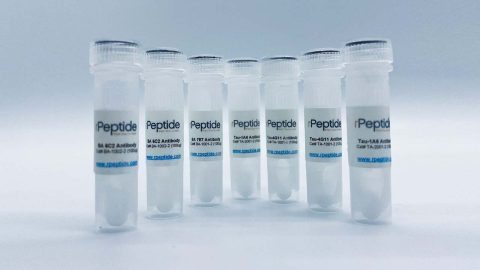
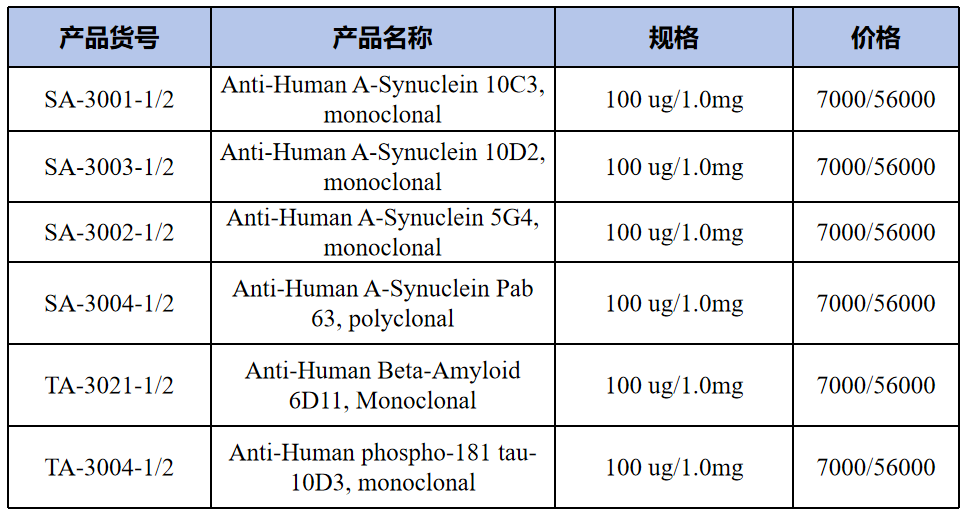
Peptides(多肽类)
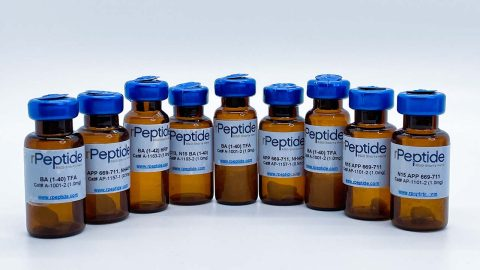

Proteins(蛋白质)
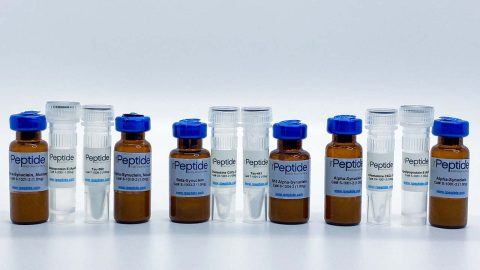
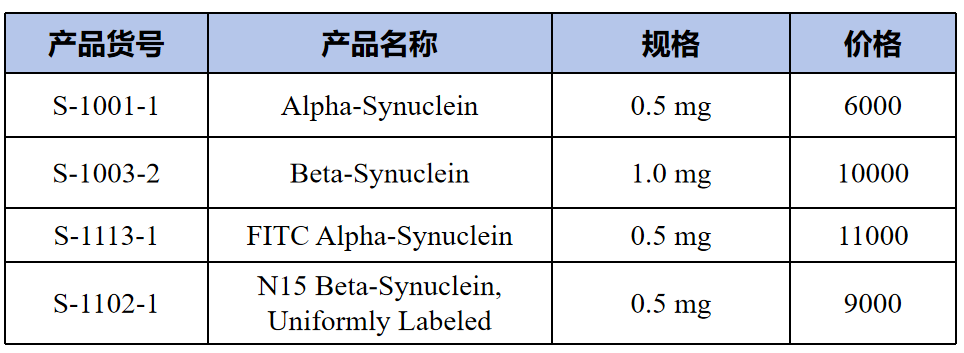
Neurodegenerative related compounds(神经退行性相关化合物)
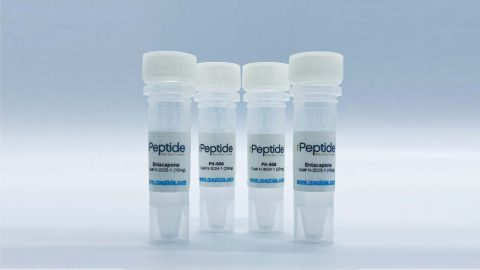
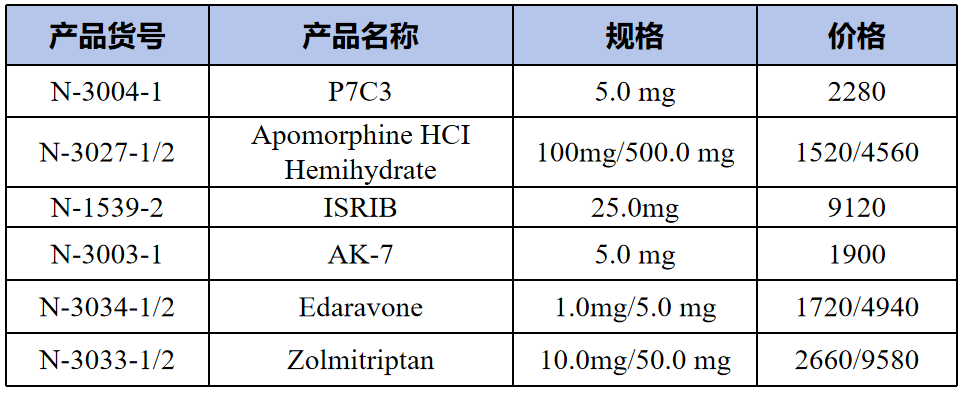
Coronavirus research tools(冠状病毒研究工具)
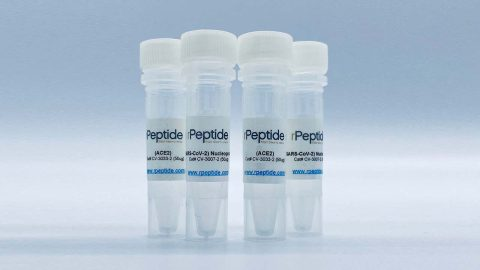
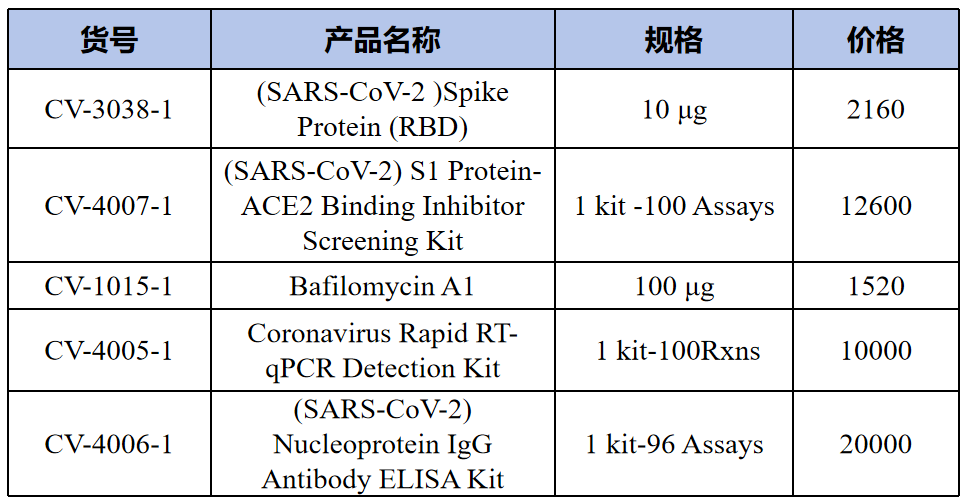
Kits(试剂盒)
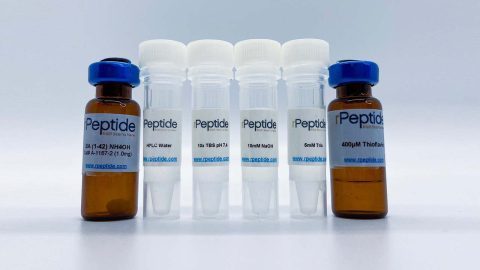
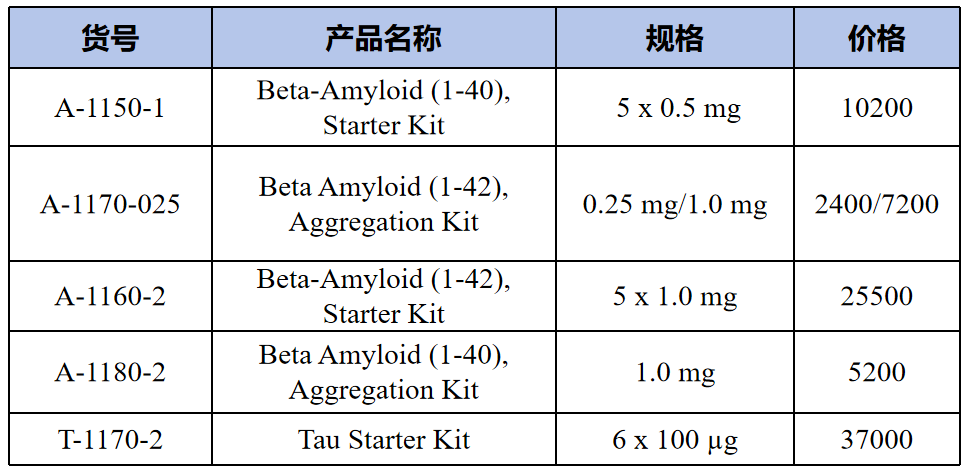
Preformed fibrils(预成型的纤维)
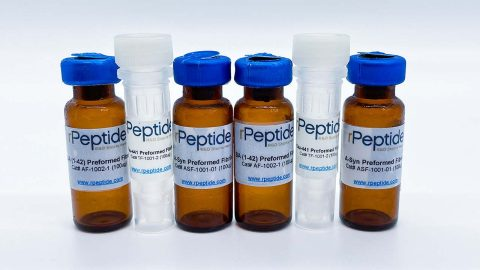

rPeptide 产品列表
Peptides
| 货号 | 名称 | 规格 | 产品描述 |
| A-1001-1 | Beta-Amyloid (1-40), TFA | 0.5 mg | Beta-amyloid (A-beta) has been long reported as the major constituent of amyloid plaques in the brains of Alzheimer’s patients, and is believed by many to be the cause of Alzheimer’s Disease (AD). AD is the most common neurodegenerative disease and afflicts more than 10% of the population over 65. Recombinantly expressed and sourced from E. coli, rPeptide’s high quality beta-amyloid products offer batch-to-batch consistency and ultrapure starting material for your research needs. The TFA (trifluoro-acetic acid) counter-ion is a peptide which was lyophilized in a final solution containing TFA and is a popular choice for researchers wishing to build on previous studies using this same product. |
| A-1001-2 | Beta-Amyloid (1-40), TFA | 1.0 mg | |
| A-1003-1 | Beta-Amyloid (1-40), Scrambled | 0.5 mg | Beta-amyloid (A-beta) has been long reported as the major constituent of amyloid plaques in the brains of Alzheimer’s patients, and is believed by many to be the cause of Alzheimer’s Disease (AD). AD is the most common neurodegenerative disease and afflicts more than 10% of the population over 65. Recombinantly expressed and sourced from E. coli, rPeptide’s high quality beta-amyloid products offer batch-to-batch consistency and ultrapure starting material for your research needs. The TFA (trifluoro-acetic acid) counter-ion is a peptide which was lyophilized in a final solution containing TFA and is a popular choice for researchers wishing to build on previous studies using this same product. Scrambled peptide is a control peptide which does not aggregate as native beta-amyloid. It is used as a negative control for aggregation. |
| A-1003-2 | Beta-Amyloid (1-40), Scrambled | 1.0 mg | |
| A-1007-1 | Beta-Amyloid (1-40), Mouse,Rat | 0.5 mg | Beta-amyloid (A-beta) has been long reported as the major constituent of amyloid plaques in the brains of Alzheimer’s patients, and is believed by many to be the cause of Alzheimer’s Disease (AD). AD is the most common neurodegenerative disease and afflicts more than 10% of the population over 65. Recombinantly expressed and sourced from E. coli, rPeptide’s high quality beta-amyloid products offer batch-to-batch consistency and ultrapure starting material for your research needs. The TFA (trifluoro-acetic acid) counter-ion is a peptide which was lyophilized in a final solution containing TFA and is a popular choice for researchers wishing to build on previous studies using this same product. |
| A-1101-1 | N15 Beta-Amyloid (1-40), Uniformly Labeled | 0.1 mg | N15 uniformly labeled beta-amyloid peptide (A-beta). A-beta is the major constituent of amyloid plaques in the brains of Alzheimer’s patients, and is thought to be the cause of Alzheimer’s Disease (AD). AD is the most common neurodegenerative disease and afflicts about 10% of the population over 60. |
| A-1101-2 | N15 Beta-Amyloid (1-40), Uniformly Labeled | 1.0 mg | |
| A-1103-1 | C13, N15 Beta-Amyloid (1-40), Uniformly Labeled | 0.5 mg | C13, N15 uniformly labeled beta-amyloid peptide (A-beta). A-beta is the major constituent of amyloid plaques in the brains of Alzheimer’s patients, and is thought to be the cause of Alzheimer’s Disease (AD). AD is the most common neurodegenerative disease and afflicts about 10% of the population over 60. |
| A-1103-2 | C13, N15 Beta-Amyloid (1-40), Uniformly Labeled | 1.0 mg | |
| A-1105-1 | C13 Beta-Amyloid (1-40), Uniformly Labeled | 0.5 mg | C13 uniformly labeled beta-amyloid peptide (A-beta). A-beta is the major constituent of amyloid plaques in the brains of Alzheimer’s patients, and is thought to be the cause of Alzheimer’s Disease (AD). AD is the most common neurodegenerative disease and afflicts about 10% of the population over 604. |
| A-1105-2 | C13 Beta-Amyloid (1-40), Uniformly Labeled | 1.0 mg | |
| A-1153-1 | Beta-Amyloid (1-40), HFIP | 0.5 mg | Beta-amyloid (A-beta) has been long reported as the major constituent of amyloid plaques in the brains of Alzheimer’s patients, and is believed by many to be the cause of Alzheimer’s Disease (AD). AD is the most common neurodegenerative disease and afflicts more than 10% of the population over 65. Recombinantly expressed and sourced from E. coli, rPeptide’s high quality beta-amyloid products offer batch-to-batch consistency and ultrapure starting material for your research needs. The HFIP (hexafluoro-isopropanol) counter-ion is a peptide which was purified before being dried with HFIP, leaving a clear dried film rather than a lyophilized powder. This counter-ion is a popular choice for researchers wishing to skip the HFIP-treatment process in their own lab while still working with a highly monomeric starting material. |
| A-1153-2 | Beta-Amyloid (1-40), HFIP | 1.0 mg | |
| A-1155-1 | Beta-Amyloid (1-40), NaOH | 0.5 mg | Beta-amyloid (A-beta) has been long reported as the major constituent of amyloid plaques in the brains of Alzheimer’s patients, and is believed by many to be the cause of Alzheimer’s Disease (AD). AD is the most common neurodegenerative disease and afflicts more than 10% of the population over 65. Recombinantly expressed and sourced from E. coli, rPeptide’s high quality beta amyloid products offer batch-to-batch consistency and ultrapure starting material for your research needs. The NaOH counter-ion is lyophilized in a basic environment, with what many would consider a more physiologically relevant solution than some other alternatives and may also be less toxic to cell-tissue samples. |
| A-1155-2 | Beta-Amyloid (1-40), NaOH | 1.0 mg | |
| A-1156-1 | Beta-Amyloid (1-40), HCl | 0.5 mg | Beta-amyloid (A-beta) has been long reported as the major constituent of amyloid plaques in the brains of Alzheimer’s patients, and is believed by many to be the cause of Alzheimer’s Disease (AD). AD is the most common neurodegenerative disease and afflicts more than 10% of the population over 65. Recombinantly expressed and sourced from E. coli, rPeptide’s high quality beta-amyloid products offer batch-to-batch consistency and ultrapure starting material for your research needs. The HCl counter-ion is lyophilized in an acidic environment, with what many would consider a more physiologically relevant solution than TFA and may also be less toxic to cell-tissue samples. |
| A-1156-2 | Beta-Amyloid (1-40), HCl | 1.0 mg | |
| A-1157-025 | Beta-Amyloid (1-40), NH4OH | 0.25 mg | Beta-amyloid (A-beta) has been long reported as the major constituent of amyloid plaques in the brains of Alzheimer’s patients, and is believed by many to be the cause of Alzheimer’s Disease (AD). AD is the most common neurodegenerative disease and afflicts more than 10% of the population over 65. Recombinantly expressed and sourced from E. coli, rPeptide’s high quality beta-amyloid products offer batch-to-batch consistency and ultrapure starting material for your research needs. The NH4OH counter-ion is lyophilized in a basic environment, is considered more physiologically relevant to many alternatives, and may also be less toxic to cell-tissue samples. In addition, The NH4OH version of our beta-amyloid peptides is provided as a highly monomeric starting material for those wishing to study the monomeric form of the product or to aggregate the peptide in their own experiments. The NH4OH counter-ion is also the same form of the peptide that we provide in our aggregation kits. This A-beta ammonium hydroxide product can be utilized for in vitro aggregation experiments as well as cell-based assays. |
| A-1157-1 | Beta-Amyloid (1-40), NH4OH | 0.5 mg | |
| A-1157-2 | Beta-Amyloid (1-40), NH4OH | 1.0 mg | |
| A-1002-1 | Beta-Amyloid (1-42), TFA | 0.5 mg | Beta-amyloid (A-beta) has been long reported as the major constituent of amyloid plaques in the brains of Alzheimer’s patients, and is believed by many to be the cause of Alzheimer’s Disease (AD). AD is the most common neurodegenerative disease and afflicts more than 10% of the population over 65. Recombinantly expressed and sourced from E. coli, rPeptide’s high quality beta-amyloid products offer batch-to-batch consistency and ultrapure starting material for your research needs. The TFA (trifluoro-acetic acid) counter-ion is a peptide which was lyophilized in a final solution containing TFA and is a popular choice for researchers wishing to build on previous studies using this same product. |
| A-1002-2 | Beta-Amyloid (1-42), TFA | 1.0 mg | |
| A-1004-1 | Beta-Amyloid (1-42), Scrambled | 0.5 mg | Beta-amyloid (A-beta) has been long reported as the major constituent of amyloid plaques in the brains of Alzheimer’s patients, and is believed by many to be the cause of Alzheimer’s Disease (AD). AD is the most common neurodegenerative disease and afflicts more than 10% of the population over 65. Recombinantly expressed and sourced from E. coli, rPeptide’s high quality beta-amyloid products offer batch-to-batch consistency and ultrapure starting material for your research needs. The TFA (trifluoro-acetic acid) counter-ion is a peptide which was lyophilized in a final solution containing TFA and is a popular choice for researchers wishing to build on previous studies using this same product. Scrambled peptide is a control peptide which does not aggregate as native beta-amyloid. It is used as a negative control for aggregation. |
| A-1004-2 | Beta-Amyloid (1-42), Scrambled | 1.0 mg | |
| A-1008-1 | Beta-Amyloid (1-42), Mouse, Rat | 0.5 mg | Beta-amyloid (A-beta) has been long reported as the major constituent of amyloid plaques in the brains of Alzheimer’s patients, and is believed by many to be the cause of Alzheimer’s Disease (AD). AD is the most common neurodegenerative disease and afflicts more than 10% of the population over 65. Recombinantly expressed and sourced from E. coli, rPeptide’s high quality beta-amyloid products offer batch-to-batch consistency and ultrapure starting material for your research needs. The TFA (trifluoro-acetic acid) counter-ion is a peptide which was lyophilized in a final solution containing TFA and is a popular choice for researchers wishing to build on previous studies using this same product. Scrambled peptide is a control peptide which does not aggregate as native beta-amyloid. It is used as a negative control for aggregation. |
| A-1008-2 | Beta-Amyloid (1-42), Mouse, Rat | 1.0 mg | |
| A-1102-1 | N15 Beta-Amyloid (1-42), Uniformly Labeled | 0.1 mg | N15 uniformly labeled beta-amyloid peptide (A-beta). A-beta is the major constituent of amyloid plaques in the brains of Alzheimer’s patients, and is thought to be the cause of Alzheimer’s Disease (AD). AD is the most common neurodegenerative disease and afflicts about 10% of the population over 60. |
| A-1102-2 | N15 Beta-Amyloid (1-42), Uniformly Labeled | 1.0 mg | |
| A-1104-1 | C13, N15 Beta-Amyloid (1-42), Uniformly Labeled | 0.5 mg | C13, N15 uniformly labeled beta-amyloid peptide (A-beta). A-beta is the major constituent of amyloid plaques in the brains of Alzheimer’s patients, and is thought to be the cause of Alzheimer’s Disease (AD). AD is the most common neurodegenerative disease and afflicts about 10% of the population over 60. |
| A-1104-2 | C13, N15 Beta-Amyloid (1-42), Uniformly Labeled | 1.0 mg | |
| A-1106-1 | C13 Beta-Amyloid (1-42), Uniformly Labeled | 0.5 mg | C13 uniformly labeled beta-amyloid peptide (A-beta). A-beta is the major constituent of amyloid plaques in the brains of Alzheimer’s patients, and is thought to be the cause of Alzheimer’s Disease (AD). AD is the most common neurodegenerative disease and afflicts about 10% of the population over 60. |
| A-1106-2 | C13 Beta-Amyloid (1-42), Uniformly Labeled | 1.0 mg | |
| A-1163-1 | Beta-Amyloid (1-42), HFIP | 0.5 mg | Beta-amyloid (A-beta) has been long reported as the major constituent of amyloid plaques in the brains of Alzheimer’s patients, and is believed by many to be the cause of Alzheimer’s Disease (AD). AD is the most common neurodegenerative disease and afflicts more than 10% of the population over 65. Recombinantly expressed and sourced from E. coli, rPeptide’s high quality beta-amyloid products offer batch-to-batch consistency and ultrapure starting material for your research needs. The HFIP (hexafluoro-isopropanol) counter-ion is a peptide which was purified before being dried with HFIP, leaving a clear dried film rather than a lyophilized powder. This counter-ion is a popular choice for researchers wishing to skip the HFIP-treatment process in their own lab while still working with a highly monomeric starting material. |
| A-1163-2 | Beta-Amyloid (1-42), HFIP | 1.0 mg | |
| A-1165-1 | Beta-Amyloid (1-42), NaOH | 0.5 mg | Beta-amyloid (A-beta) has been long reported as the major constituent of amyloid plaques in the brains of Alzheimer’s patients, and is believed by many to be the cause of Alzheimer’s Disease (AD). AD is the most common neurodegenerative disease and afflicts more than 10% of the population over 65. Recombinantly expressed and sourced from E. coli, rPeptide’s high quality beta-amyloid products offer batch-to-batch consistency and ultrapure starting material for your research needs. The NaOH counter-ion is lyophilized in a basic environment, with what many would consider a more physiologically relevant solution than some other alternatives and may also be less toxic to cell-tissue samples. |
| A-1165-2 | Beta-Amyloid (1-42), NaOH | 1.0 mg | |
| A-1166-1 | Beta-Amyloid (1-42), HCl | 0.5 mg | Beta-amyloid (A-beta) has been long reported as the major constituent of amyloid plaques in the brains of Alzheimer’s patients, and is believed by many to be the cause of Alzheimer’s Disease (AD). AD is the most common neurodegenerative disease and afflicts more than 10% of the population over 65. Recombinantly expressed and sourced from E. coli, rPeptide’s high quality beta-amyloid products offer batch-to-batch consistency and ultrapure starting material for your research needs. The HCl counter-ion is lyophilized in an acidic environment, with what many would consider a more physiologically relevant solution than TFA and may also be less toxic to cell-tissue samples. |
| A-1166-2 | Beta-Amyloid (1-42), HCl | 1.0 mg | |
| A-1167-025 | Beta-Amyloid (1-42), NH4OH | 0.25 mg | Beta-amyloid peptide (Abeta), the major constituent of amyloid plaques in the brains of Alzheimer’s patients, is thought to be the cause of Alzheimer’s Disease (AD). AD is the most common neurodegenerative disease and afflicts about 10% of the population over 60. Using a proprietary production technique that limits the peptide’s conformational changes, rPeptide has produced an ammonium hydroxide beta amyloid counter-ion. The Abeta ammonium hydroxide product can be utilized for in vitro aggregation experiments as well as cell based assays. |
| A-1167-1 | Beta-Amyloid (1-42), NH4OH | 0.5 mg | |
| A-1167-2 | Beta-Amyloid (1-42), NH4OH | 1.0 mg | |
| A-1005-1 | Beta-Amyloid (1-43) | 0.5 mg | Beta-amyloid (A-beta) has been long reported as the major constituent of amyloid plaques in the brains of Alzheimer’s patients, and is believed by many to be the cause of Alzheimer’s Disease (AD). AD is the most common neurodegenerative disease and afflicts more than 10% of the population over 65. Recombinantly expressed and sourced from E. coli, rPeptide’s high quality beta-amyloid products offer batch-to-batch consistency and ultrapure starting material for your research needs. The TFA (trifluoro-acetic acid) counter-ion is a peptide which was lyophilized in a final solution containing TFA and is a popular choice for researchers wishing to build on previous studies using this same product. |
| A-1005-2 | Beta-Amyloid (1-43) | 1.0 mg | |
| A-1107-1 | N15 Beta-Amyloid (1-43), Uniformly Labeled | 1.0 mg | N15 uniformly labeled beta-amyloid peptide (A-beta). A-beta is the major constituent of amyloid plaques in the brains of Alzheimer’s patients, and is thought to be the cause of Alzheimer’s Disease (AD). AD is the most common neurodegenerative disease and afflicts about 10% of the population over 60. |
| A-1108-1 | C13, N15 Beta-Amyloid (1-43), Uniformly Labeled | 0.5 mg | N15 uniformly labeled beta-amyloid peptide (A-beta). A-beta is the major constituent of amyloid plaques in the brains of Alzheimer’s patients, and is thought to be the cause of Alzheimer’s Disease (AD). AD is the most common neurodegenerative disease and afflicts about 10% of the population over 60. |
| A-1108-2 | C13, N15 Beta-Amyloid (1-43), Uniformly Labeled | 1.0 mg | |
| A-1109-1 | C13, Beta-Amyloid (1-43), Uniformly Labeled | 0.5 mg | C13 uniformly labeled beta-amyloid peptide (A-beta). A-beta is the major constituent of amyloid plaques in the brains of Alzheimer’s patients, and is thought to be the cause of Alzheimer’s Disease (AD). AD is the most common neurodegenerative disease and afflicts about 10% of the population over 60. |
| A-1109-2 | C13, Beta-Amyloid (1-43), Uniformly Labeled | 1.0 mg | |
| A-1011-1 | Beta-Amyloid (1-40), F4W Mutant | 100 µg | Beta-amyloid (A-beta) has been long reported as the major constituent of amyloid plaques in the brains of Alzheimer’s patients, and is believed by many to be the cause of Alzheimer’s Disease (AD). AD is the most common neurodegenerative disease and afflicts more than 10% of the population over 65. Recombinantly expressed and sourced from E. coli, rPeptide’s high quality beta-amyloid products offer batch-to-batch consistency and ultrapure starting material for your research needs. The TFA (trifluoro-acetic acid) counter-ion is a peptide which was lyophilized in a final solution containing TFA and is a popular choice for researchers wishing to build on previous studies using this same product. |
| A-1011-2 | Beta-Amyloid (1-40), F4W Mutant | 1.0 mg | |
| A-1012-1 | Beta-Amyloid (1-40), Y10W Mutant | 100 µg | Beta-amyloid (A-beta) has been long reported as the major constituent of amyloid plaques in the brains of Alzheimer’s patients, and is believed by many to be the cause of Alzheimer’s Disease (AD). AD is the most common neurodegenerative disease and afflicts more than 10% of the population over 65. Recombinantly expressed and sourced from E. coli, rPeptide’s high quality beta-amyloid products offer batch-to-batch consistency and ultrapure starting material for your research needs. The TFA (trifluoro-acetic acid) counter-ion is a peptide which was lyophilized in a final solution containing TFA and is a popular choice for researchers wishing to build on previous studies using this same product. |
| A-1012-2 | Beta-Amyloid (1-40), Y10W Mutant | 1.0 mg | |
| A-1013-1 | Beta-Amyloid (1-40), D23N Mutant | 100µg | Beta-amyloid (A-beta) has been long reported as the major constituent of amyloid plaques in the brains of Alzheimer’s patients, and is believed by many to be the cause of Alzheimer’s Disease (AD). AD is the most common neurodegenerative disease and afflicts more than 10% of the population over 65. Recombinantly expressed and sourced from E. coli, rPeptide’s high quality beta-amyloid products offer batch-to-batch consistency and ultrapure starting material for your research needs. The TFA (trifluoro-acetic acid) counter-ion is a peptide which was lyophilized in a final solution containing TFA and is a popular choice for researchers wishing to build on previous studies using this same product. |
| A-1014-1 | Beta-Amyloid (1-40), G38A Mutant | 100 µg | Beta-amyloid (A-beta) has been long reported as the major constituent of amyloid plaques in the brains of Alzheimer’s patients, and is believed by many to be the cause of Alzheimer’s Disease (AD). AD is the most common neurodegenerative disease and afflicts more than 10% of the population over 65. Recombinantly expressed and sourced from E. coli, rPeptide’s high quality beta-amyloid products offer batch-to-batch consistency and ultrapure starting material for your research needs. The TFA (trifluoro-acetic acid) counter-ion is a peptide which was lyophilized in a final solution containing TFA and is a popular choice for researchers wishing to build on previous studies using this same product. |
| A-1014-2 | Beta-Amyloid (1-40), G38A Mutant | 1.0 mg | |
| A-1021-1 | Beta-Amyloid (1-42), M35V Mutant | 100 µg | Beta-amyloid (A-beta) has been long reported as the major constituent of amyloid plaques in the brains of Alzheimer’s patients, and is believed by many to be the cause of Alzheimer’s Disease (AD). AD is the most common neurodegenerative disease and afflicts more than 10% of the population over 65. Recombinantly expressed and sourced from E. coli, rPeptide’s high quality beta-amyloid products offer batch-to-batch consistency and ultrapure starting material for your research needs. The TFA (trifluoro-acetic acid) counter-ion is a peptide which was lyophilized in a final solution containing TFA and is a popular choice for researchers wishing to build on previous studies using this same product. |
| A-1021-2 | Beta-Amyloid (1-42), M35V Mutant | 1.0 mg | |
| A-1022-1 | Beta-Amyloid (1-42), R5G Mutant | 100 µg | Beta-amyloid (A-beta) has been long reported as the major constituent of amyloid plaques in the brains of Alzheimer’s patients, and is believed by many to be the cause of Alzheimer’s Disease (AD). AD is the most common neurodegenerative disease and afflicts more than 10% of the population over 65. Recombinantly expressed and sourced from E. coli, rPeptide’s high quality beta-amyloid products offer batch-to-batch consistency and ultrapure starting material for your research needs. The TFA (trifluoro-acetic acid) counter-ion is a peptide which was lyophilized in a final solution containing TFA and is a popular choice for researchers wishing to build on previous studies using this same product. |
| A-1022-2 | Beta-Amyloid (1-42), R5G Mutant | 1.0 mg | |
| A-1023-1 | Beta-Amyloid (1-42), Y10A Mutant | 100 µg | Beta-amyloid (A-beta) has been long reported as the major constituent of amyloid plaques in the brains of Alzheimer’s patients, and is believed by many to be the cause of Alzheimer’s Disease (AD). AD is the most common neurodegenerative disease and afflicts more than 10% of the population over 65. Recombinantly expressed and sourced from E. coli, rPeptide’s high quality beta-amyloid products offer batch-to-batch consistency and ultrapure starting material for your research needs. The TFA (trifluoro-acetic acid) counter-ion is a peptide which was lyophilized in a final solution containing TFA and is a popular choice for researchers wishing to build on previous studies using this same product. |
| A-1023-2 | Beta-Amyloid (1-42), Y10A Mutant | 1.0 mg | |
| A-1024-1 | Beta-Amyloid (1-42), F4W Mutant | 100 µg | Beta-amyloid (A-beta) has been long reported as the major constituent of amyloid plaques in the brains of Alzheimer’s patients, and is believed by many to be the cause of Alzheimer’s Disease (AD). AD is the most common neurodegenerative disease and afflicts more than 10% of the population over 65. Recombinantly expressed and sourced from E. coli, rPeptide’s high quality beta-amyloid products offer batch-to-batch consistency and ultrapure starting material for your research needs. The TFA (trifluoro-acetic acid) counter-ion is a peptide which was lyophilized in a final solution containing TFA and is a popular choice for researchers wishing to build on previous studies using this same product. |
| A-1024-2 | Beta-Amyloid (1-42), F4W Mutant | 1.0 mg | |
| A-1025-1 | Beta-Amyloid (1-42), H6A Mutant | 100 µg | Beta-amyloid (A-beta) has been long reported as the major constituent of amyloid plaques in the brains of Alzheimer’s patients, and is believed by many to be the cause of Alzheimer’s Disease (AD). AD is the most common neurodegenerative disease and afflicts more than 10% of the population over 65. Recombinantly expressed and sourced from E. coli, rPeptide’s high quality beta-amyloid products offer batch-to-batch consistency and ultrapure starting material for your research needs. The TFA (trifluoro-acetic acid) counter-ion is a peptide which was lyophilized in a final solution containing TFA and is a popular choice for researchers wishing to build on previous studies using this same product. |
| A-1026-1 | Beta-Amyloid (1-42), H13A Mutant | 100 µg | |
| A-1026-2 | Beta-Amyloid (1-42), H13A Mutant | 1.0 mg | Beta-amyloid (A-beta) has been long reported as the major constituent of amyloid plaques in the brains of Alzheimer’s patients, and is believed by many to be the cause of Alzheimer’s Disease (AD). AD is the most common neurodegenerative disease and afflicts more than 10% of the population over 65. Recombinantly expressed and sourced from E. coli, rPeptide’s high quality beta-amyloid products offer batch-to-batch consistency and ultrapure starting material for your research needs. The TFA (trifluoro-acetic acid) counter-ion is a peptide which was lyophilized in a final solution containing TFA and is a popular choice for researchers wishing to build on previous studies using this same product. |
| A-1027-1 | Beta-Amyloid (1-42), H14A Mutant | 100 µg | Beta-amyloid (A-beta) has been long reported as the major constituent of amyloid plaques in the brains of Alzheimer’s patients, and is believed by many to be the cause of Alzheimer’s Disease (AD). AD is the most common neurodegenerative disease and afflicts more than 10% of the population over 65. Recombinantly expressed and sourced from E. coli, rPeptide’s high quality beta-amyloid products offer batch-to-batch consistency and ultrapure starting material for your research needs. The TFA (trifluoro-acetic acid) counter-ion is a peptide which was lyophilized in a final solution containing TFA and is a popular choice for researchers wishing to build on previous studies using this same product. |
| A-1027-2 | Beta-Amyloid (1-42), H14A Mutant | 1.0 mg |
联系我们
相关推荐
评论列表共有 0 条评论
暂无评论
发表评论
取消回复
药科美专注生命科学产品进出口与技术服务

